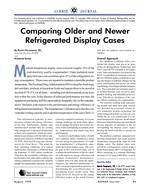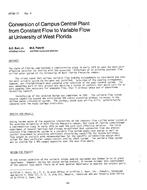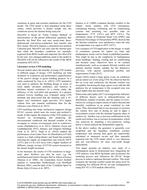This paper shows that the cost of space conditioning of buildings is in the same order of magnitude as the cost caused by deteriorated indoor air quality. The requirements for good indoor air quality and energy efficiency have often been considered to conflict with each other; however, buildings with low energy consumption in Europe seem to have also a lower rate of building-related symptoms. This indicates the importance of proper design and installation and qualified, well-trained operational personnel who understand both the requirements for good indoor air quality and energy efficiency. Several strategies for ventilation are described in this paper by which, at the same level of energy consumption, the indoor air quality is improved or, at the same level of indoor air quality, the energy consumption is reduced. These include the following: proper target and design values of indoor air quality and climate, proper location of fresh air intakes, cleaning of intake air, efficient air distribution in rooms with improved ventilation efficiency, heat recovery from exhaust air, control of ventilation rates by air quality, proper selection and control of airflows, correct balancing of airflows, source control and efficient removal of contaminants, controlling indoor climate locally, and natural ventilation and free cooling.
Authors:Olli SeppÃnen, P.E.
Citation:IAQ and Energy 98 Using ASHRAE Standards 62 and 90.1 Conference Papers
Keywords:October, Louisiana, 1998
Citation: IAQ Conference: IAQ 98
Product Details
- Published:
- 1998
- File Size:
- 1 file , 400 KB
- Product Code(s):
- D-8144


